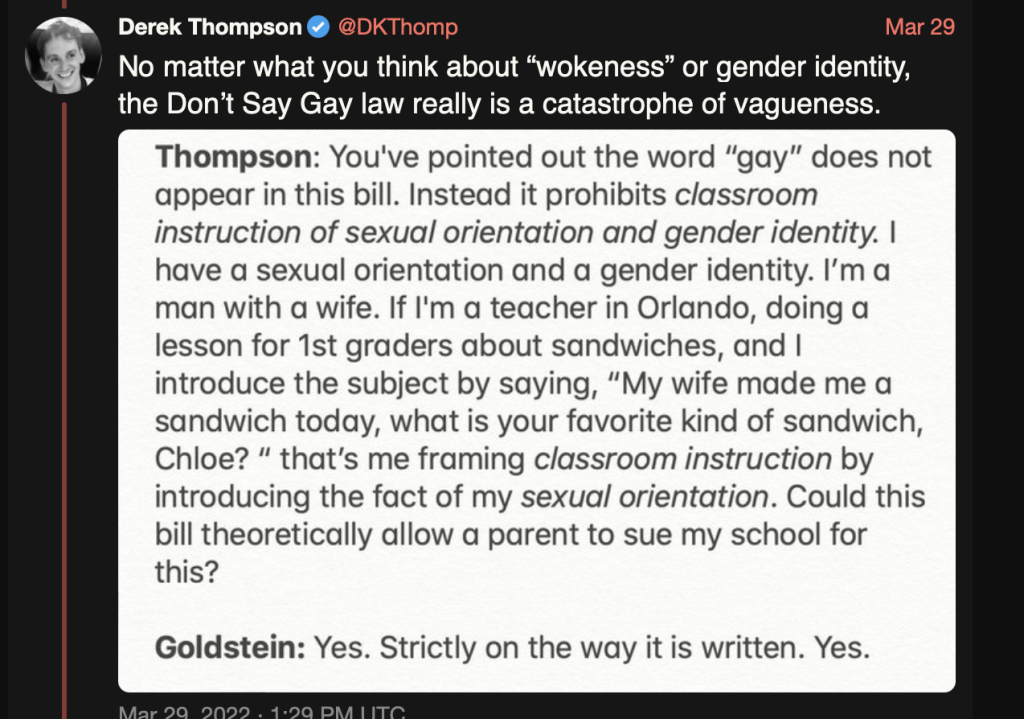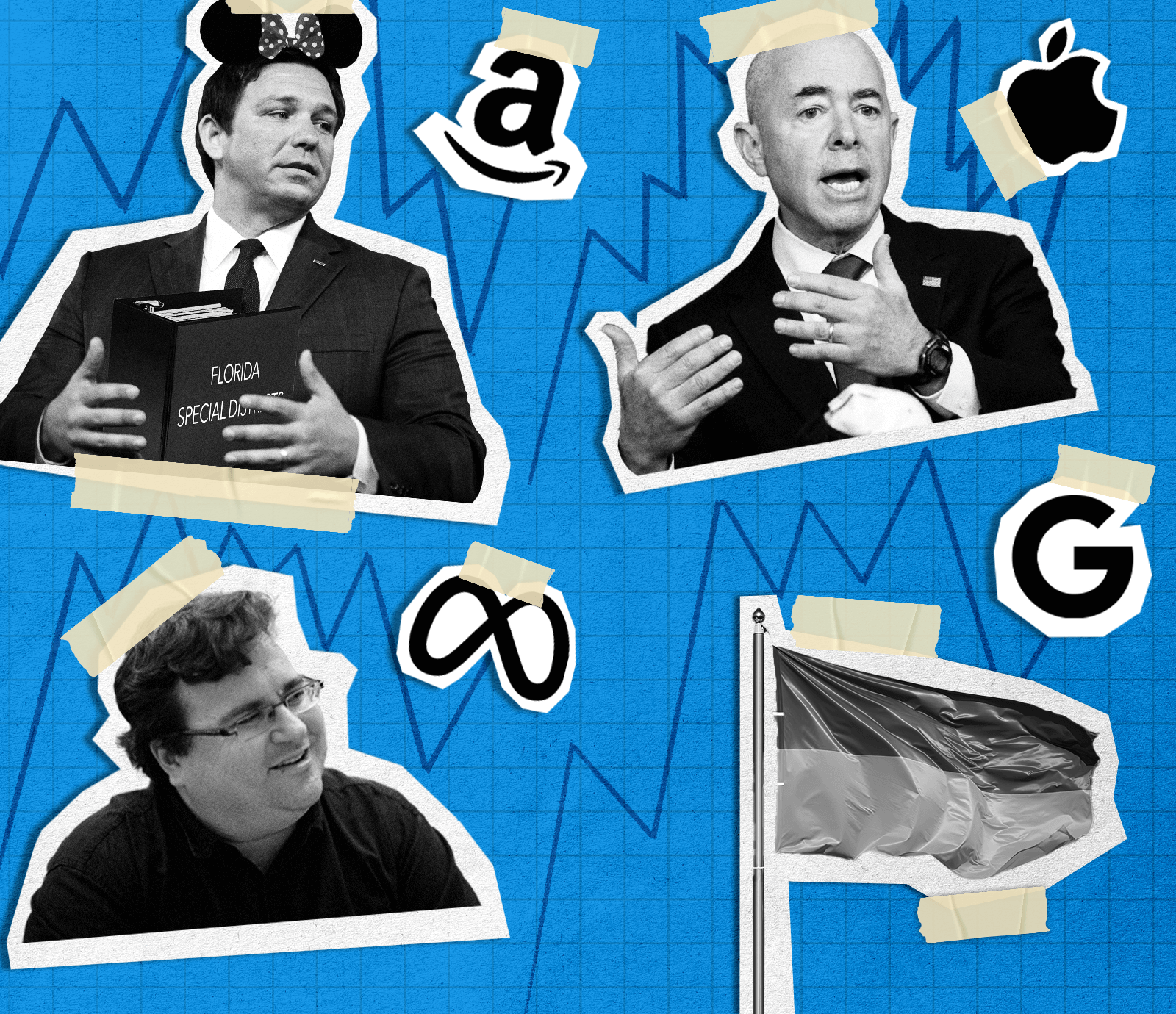This article originally appeared on our substack
1. Reid Hoffman Invests in Centrist PAC
Musk wasn’t the only member of the Paypal Mafia to make news this week. Teddy Schleifer of Puck reported Tuesday that billionaire Reid Hoffman has donated $500,000 to the “Mainstream Democrats PAC,” a “stealthy” centrist Democratic political action committee meant to beat back left-wing populists. Teddy’s story is notable because so much attention has been paid to the divides within this cycle’s GOP primaries (Purdue v. Kemp, Vance v. Mandel, Dr. Oz v. reality McCormick, the Thiel effect, the Trump effect, etc . . .), and next to nothing about Democratic divisions. One possible explanation for this discrepancy is the general lack of competitive Democratic primaries, especially in the Senate.
But this Hoffman story is significant because the Trump years were marked by relative harmony in Democratic PAC politics. I know this first-hand because, throughout that period, I ran a progressive Political Action Committee and 501(c)4 that received sizable donations from Hoffman. At the time, Silicon Valley donors like Hoffman seemed less interested in the divisions between centrists and the far left, and more focused on defeating Donald Trump. Primary fights rarely, if ever, came up. I suspect some of them now regret not paying enough attention to intra-party dynamics, because many of the organizations they invested in helped pull the party in directions that I suspect they weren’t too comfortable with (especially on policing, socialism, race, and immigration).
My prediction: expect to see much more money pour into PACs like this, and expect the fight to get nasty. The 2022 cycle will likely be marked by some warm-up skirmishes between the centrists and the far-left candidates, but there just aren’t enough competitive primaries for it to break into an all-out war. I’d predict a full imbroglio to erupt early in the 2024 cycle, especially if the 2022 results fuel a round of finger-pointing.
2. The Looming Border Crisis
This week brought two significant developments in the saga of Title 42, the federal code that was used by Trump and then Biden to block migrants from crossing the border in the name of public health (we covered Title 42 on our show two weeks ago).
Earlier this month, the Biden White House, under pressure from Democrats, announced that it would stop deporting migrants under Title 42 — starting May 23. On Monday, a federal judge issued a temporary restraining order to keep Title 42 in place. This ruling was in response to a lawsuit brought by three states — Missouri, Arizona, and Louisiana — who argued that revoking Title 42 would “result in an unprecedented crisis at the United States southern border.”
There was a part of me that thought the Biden administration would secretly love that ruling, as it would give them an excuse to pretend to have tried to loosen border restrictions and could blame Republican state lawmakers for tying their hands. But one day after the federal court ruling, Secretary of Homeland Security Mayorkas released a memo that signaled the administration is still ready to move ahead with lifting Title 42 on May 23 if the courts allow them. The memo, well worth a read, is filled with details about how DHS plans to bolster capacity at the border. Notably, Mayorkas admits that there will be a major influx at the border in response to this move.
3. Don’t Forget Ukraine
Defiant Ukrainians celebrated Orthodox Easter in tattered churches this Sunday. Local television channels took a break from war coverage to share scenes of prayer and camaraderie. Despite the holiday, however, attacks did not ease up. Bombs and artillery shells continued to rain down as fighting rages in the south and east.
Meanwhile, evidence of civilian casualties and war crimes continues to surface. A third mass grave was found near Mariupol and new drone footage shows Russian forces on a street in Bucha scattered with civilian bodies. As of April 25, the civilian death toll has surpassed 2,500, including nearly 300 children. Keep in mind these are conservative numbers based only on deaths confirmed by the United Nations, and actual numbers are projected to be considerably higher.
The conflict has officially spurred the largest refugee exodus since World War II. More than 11 million Ukrainians have fled their homes so far. 6.5 million are displaced within the country, and an additional 5.2 million left for nearby countries. Nearly half of them have landed in neighboring Poland, where locals are welcoming refugees into their homes. Meanwhile, the U.S. Department of Homeland Security has launched the “Uniting for Ukraine” initiative, which is set to sponsor 100,000 refugees.
Despite considerable suffering, there is still hope for a Ukrainian victory. “Ukraine clearly believes it can win, and so does everyone else here,” Secretary of Defense Lloyd Austin said during a Tuesday address at a German air base. “Ukraine needs our help to win today.” Accordingly, the Biden administration is asking Congress for $60.4 billion this fiscal year to rally allies and ensure Ukraine triumphs.
4. Disney v. DeSantis Continues
Florida Governor Ron DeSantis signed a bill last Friday to strip Walt Disney of its self-governing authority at its Orlando-area parks. This follows Disney’s opposition to a new Florida law that limits the teaching of LGBTQ issues in schools. On our Tuesday show, we dove into the intricacies of Disney’s self-governing status and the implications for corporate political activism, First Amendment precedent, Disney’s future in the state, and Florida’s state and local government finances. Earlier in the year, we broke down the education bill itself.
As I pointed out on the show, I believe the education bill was problematic for many reasons. It seemed to be written in a deliberately vague manner in an attempt to deflect criticism while sowing fear from educators confused about how to comply with its provisions. The vagueness was the point.

Disney understandably had problems with this legislation (especially since so many of their employees send their kids to Florida schools), but their CEO was comically inept in the way he handled it – initially avoiding speaking out before taking on the issue with gusto. At the same time, DeSantis is extremely popular with Florida voters — an electorate that seems more supportive of his education bill than conventional wisdom suggests. His confidence (hubris?) is what led him down the path to punish one of the largest employers in his state.
As we pointed out on Tuesday’s show, DeSantis’ latest move to strip Disney of its special status is littered with landmines. For one, it may violate the First Amendment. The move may also shoulder Florida’s taxpayers with the enormous tab for the government services that Disney had been paying for and running under their self-governing status, but that will now be the responsibility of the surrounding county.
On Wednesday, we were greeted with another wrinkle in this story. According to reporting in the Miami Herald, an obscure provision of Florida law says the state cannot move forward with plans to strip Disney of their special status unless they pay off the district’s bond debt, estimated to be upward of $1 billion. This raises many questions: Will the state or surrounding county be okay with taking on that debt? Or will DeSantis and the legislature just change the law so they no longer inherit the debt? Would that even be legal?
In short: this story isn’t going anywhere.
5. Big Tech Finances
It’s earnings week for many big tech companies, and The Economist took the opportunity to dive into the finances of these corporations using brokers’ reports, hedge-fund analyses and antitrust court cases.
Here are some of the most revealing tidbits:
- The article generally paints a picture of companies heavily dependent on a few big profit generators. Meta appears to be the least diversified, almost wholly dependent on a single source of profit: online advertising, which makes up a whopping 97% of its revenues.
- App Store profits are absurd. Apple’s app store has been estimated at 78% operating margin and 62% for Google. Compare to 35% operating margin for Apple’s overall business and 31% for Alphabet’s (Google’s parent company).
- Games account for 70% of Apple’s app store profits, underscoring the stakes of the Epic Games case.
- Instagram accounted for $42bn of Meta’s revenues last year, nearly two-fifths of the total and up from a reported $20bn, or a quarter of the total, in 2019.
- Customer churn is real. 20% of iPhone users switched to another smartphone in 2019 and 2020. And teenagers are leaving Facebook in droves, now spending more than twice as much time on TikTok.
The whole article is well worth a read. It paints a picture of companies that enjoy jaw-dropping profits but who are also vulnerable in ways I hadn’t realized.




